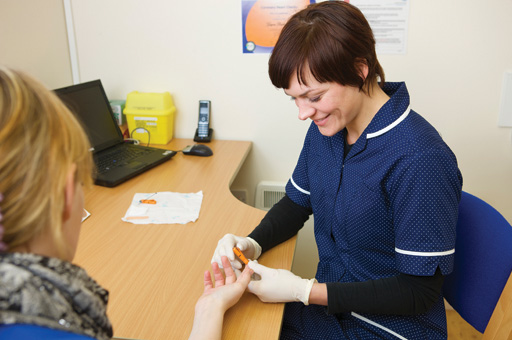Diabetes screening costs in pharmacy similar to GPs
In Clinical
Follow this topic
Bookmark
Record learning outcomes

The cost of screening for type 2 diabetes and the identification rates in community pharmacies are similar to those reported in medical practices, according to a new study.
The economic analysis used data collected from 172 patients from six pharmacies in Leicester and 164 patients from six pharmacies in Surrey. The model assumed that patients would complete a valid and reliable questionnaire to screen for type 2 diabetes.
Based on the questionnaire, a pharmacist would offer people at moderate or high risk of diabetes an HbA1c non-fasting finger-prick blood test. Individuals at high risk of diabetes (HbA1c between 6.1 per cent; 43mmol/mol and 6.4 per cent; 47mmol/mol) would be offered a follow-up appointment in three months and people with suspected type 2 diabetes (HbA1c at least 6.5 per cent; 48mmol/mol) referred to their GP.
The questionnaire indicated that 37 and 24 per cent of patients in Leicester and Surrey respectively were at medium to high risk of diabetes. The model predicted that 5.2 and 3.9 per cent of patients in Leicester and Surrey respectively would be at high risk and that 5.2 and 2.4 per cent would be referred. The cost for each person screened was estimated at £28.65.
The cost for each appropriately referred type 2 diabetes patient was an estimated £7,638 and £11,297 in Leicester and Surrey respectively. Previous studies suggested a ‘worst case’ that only 60 per cent of referred patients would inform their GP. In this scenario, the cost for each appropriately referred patient was estimated at £12,730 and £18,828, respectively.
The authors commented that the estimated cost per test “was only marginally greater than that reported in other medical practice-based studies”. The proportion of patients identified as being at high risk of diabetes was similar to a previous study of people screened in medical practices in Leicester. “Consequently, we can assume that a community pharmacy-based service is likely to provide similar results to that provided from a medical practice,” the authors conclude.
